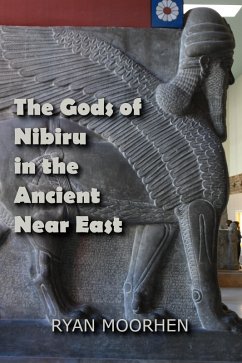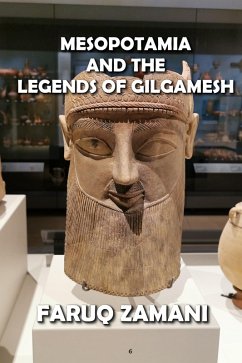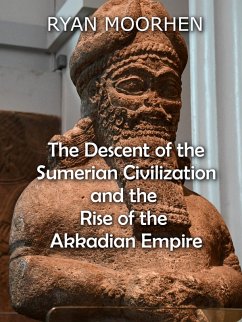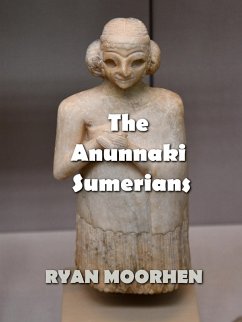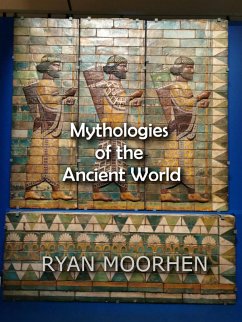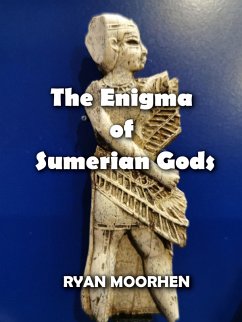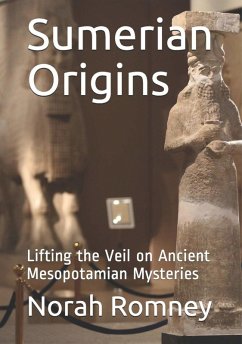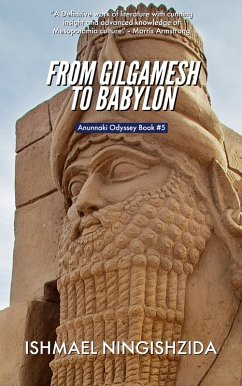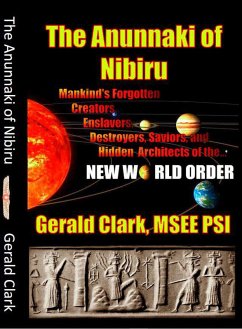
Origin of the Nephilim In Mesopotamia (eBook, ePUB)

PAYBACK Punkte
0 °P sammeln!
The Anunnaki in the Epic of Gilgamesh compared to the Nephilim Flood Narrative?Scholars have long debated whether the Anunnaki in the Epic of Gilgamesh is the same beings as the Nephilim of Genesis 6. there is a direct connection between these two groups of entities which sheds light on this critical question. One of the biggest problems with interpreting certain parts of ancient texts, such as the Book of Genesis, and other writings, can be traced back to an almost fanatical obsession. Many have treated all such writings as purely historical documents rather than trying to understand them wit...
The Anunnaki in the Epic of Gilgamesh compared to the Nephilim Flood Narrative?
Scholars have long debated whether the Anunnaki in the Epic of Gilgamesh is the same beings as the Nephilim of Genesis 6. there is a direct connection between these two groups of entities which sheds light on this critical question. One of the biggest problems with interpreting certain parts of ancient texts, such as the Book of Genesis, and other writings, can be traced back to an almost fanatical obsession. Many have treated all such writings as purely historical documents rather than trying to understand them within their proper cultural context. We run into all kinds of challenges because we deal with stories initially intended to be read or listened to for entertainment or some religious significance rather than for their scientific or historical accuracy. This does not mean that these narratives have no value in terms of what they can teach us about ancient societies but means that scholars need to approach them from different perspectives if they wish to make any progress when it comes time for interpretation.
Was Noah's flood an actual event?
"The Epic of Gilgamesh," written in ancient Akkadian and Babylonian, is an epic poem discovered on 12 clay tablets. It tells the story of Gilgamesh, a demigod king who seeks to find immortality after being grieved by the death of his companion Enkidu. The hero travels across the world and meets Utnapishtim, the survivor of a great flood sent by the gods to destroy humankind. After hearing about Utnapishtim's story and lessons, Gilgamesh returns home to his city empty-handed.
The lineage between these two stories is undeniable. The entire account found in "The Epic of Gilgamesh" reads like a precursor to Noah's flood narrative in Genesis 6-9. Both are similar: In both accounts, there were warriors from a godly race who descended from Heaven to take wives from among human women (Genesis 6:2; "Gilgamesh XI"). Both stories feature identical names for their heroes: Utnapishtim and Noah (Gilgamesh XI; Genesis 9:29). Furthermore, both heroes received divine instructions for constructing arks to save all air-breathing life on Earth from an imminent cataclysmic flood (Gilgamesh XI; Genesis 6:14).
The legendary kings of Uruk
Gilgamesh, who ruled the capital of Uruk around 2800 BC, is arguably one of the most famous and vital figures in ancient Mesopotamian mythology. He was thought to be a two-thirds god and one-third man, making him a demigod-half-human and half-divine. Gilgamesh was a mighty warrior whose prowess in combat inspired fear throughout Mesopotamia. He slew lions barehanded and killed ferocious beasts with ease. Many myths about him describe his adventures as king of Uruk, but the most famous stories about Gilgamesh are those found in The Epic of Gilgamesh-the earliest known epic poem that dates to approximately 2100-2000 B.C.
Scholars have long debated whether the Anunnaki in the Epic of Gilgamesh is the same beings as the Nephilim of Genesis 6. there is a direct connection between these two groups of entities which sheds light on this critical question. One of the biggest problems with interpreting certain parts of ancient texts, such as the Book of Genesis, and other writings, can be traced back to an almost fanatical obsession. Many have treated all such writings as purely historical documents rather than trying to understand them within their proper cultural context. We run into all kinds of challenges because we deal with stories initially intended to be read or listened to for entertainment or some religious significance rather than for their scientific or historical accuracy. This does not mean that these narratives have no value in terms of what they can teach us about ancient societies but means that scholars need to approach them from different perspectives if they wish to make any progress when it comes time for interpretation.
Was Noah's flood an actual event?
"The Epic of Gilgamesh," written in ancient Akkadian and Babylonian, is an epic poem discovered on 12 clay tablets. It tells the story of Gilgamesh, a demigod king who seeks to find immortality after being grieved by the death of his companion Enkidu. The hero travels across the world and meets Utnapishtim, the survivor of a great flood sent by the gods to destroy humankind. After hearing about Utnapishtim's story and lessons, Gilgamesh returns home to his city empty-handed.
The lineage between these two stories is undeniable. The entire account found in "The Epic of Gilgamesh" reads like a precursor to Noah's flood narrative in Genesis 6-9. Both are similar: In both accounts, there were warriors from a godly race who descended from Heaven to take wives from among human women (Genesis 6:2; "Gilgamesh XI"). Both stories feature identical names for their heroes: Utnapishtim and Noah (Gilgamesh XI; Genesis 9:29). Furthermore, both heroes received divine instructions for constructing arks to save all air-breathing life on Earth from an imminent cataclysmic flood (Gilgamesh XI; Genesis 6:14).
The legendary kings of Uruk
Gilgamesh, who ruled the capital of Uruk around 2800 BC, is arguably one of the most famous and vital figures in ancient Mesopotamian mythology. He was thought to be a two-thirds god and one-third man, making him a demigod-half-human and half-divine. Gilgamesh was a mighty warrior whose prowess in combat inspired fear throughout Mesopotamia. He slew lions barehanded and killed ferocious beasts with ease. Many myths about him describe his adventures as king of Uruk, but the most famous stories about Gilgamesh are those found in The Epic of Gilgamesh-the earliest known epic poem that dates to approximately 2100-2000 B.C.
Dieser Download kann aus rechtlichen Gründen nur mit Rechnungsadresse in A, B, CY, CZ, D, DK, EW, E, FIN, F, GR, H, IRL, I, LT, L, LR, M, NL, PL, P, R, S, SLO, SK ausgeliefert werden.




